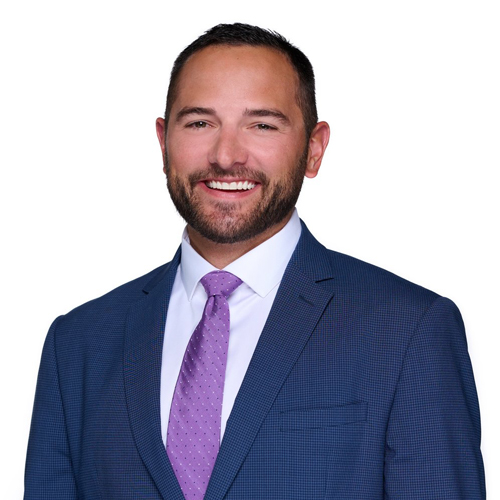Growth versus protection. Security versus potential. This isn’t a discussion on investment strategies, portfolio adjustments, or selecting the ideal retirement account but rather the junction where investing and insurance collide. One is designed to move you forward on your investment journey, the other is to protect you along the way. And just like investing, insurance can be a risk in itself if you don’t know what you are doing.
Regardless of the route you take, there’s always the chance of regret. Every dollar spent on insurance is a dollar that’s not being invested for growth, while a lack of protection leaves your assets dangerously exposed, potentially resulting in a loss of assets you’ve worked hard to accumulate.
Complicating things further is the sheer amount of insurance products, all with intricate rules and regulations that can make investing look simple in comparison. Combined with their commission-based nature that incentivizes sales, insurance is a minefield just as dangerous as a volatile market.
All the same, insurance does play a vital role not just in your family’s financial security but also in your overall estate planning needs and, perhaps most importantly, your peace of mind. Let’s take a look at when and how you should utilize insurance from a neutral perspective.
A Neutral Opinion
If you consult with an insurance agent, keep in mind that their role includes selling insurance products, not just advising you on your insurance needs. While they’re likely highly knowledgeable and aim to provide sound advice, the commission-based nature of their work could introduce a certain bias that could lead to you purchasing an improper product.
That’s why seeking the advice of a fiduciary financial advisor is absolutely vital before going insurance shopping. Since advisors aren’t receiving a commission, they aren’t going to push something on you that you don’t need. Quite the opposite – they’ll recommend exactly what you need, no more, no less, to the best of their abilities – it’s their fiduciary duty, after all.
Armed with this advice, you can begin your conversation with an insurance agent by letting them know you’re specifically interested in the options recommended by your financial advisor.
Kinds of Insurance
Standard Insurance
Some forms of insurance are universally recognized, and the reasons for needing them are clear-cut — car and health insurance, for instance. But what about life insurance? Specifically, term life insurance falls into a category that many might overlook but should strongly consider, especially with the guidance of a financial advisor.
Term life insurance provides coverage for a specific period, such as 10, 20, or 30 years. It offers a straightforward approach: you pay a premium, and if you pass away within the term, a death benefit is paid to your beneficiaries. Sounds simple, but the reality is more nuanced. The right term length, payout amount, and even the credibility of the insurance provider are variables that warrant professional input.
Umbrella Insurance
For those with higher profiles or substantial assets, umbrella insurance can provide an extra layer of protection. This coverage kicks in where your standard liability limits on policies like home and auto run out. For example, if you face a defamation lawsuit due to a negative online review or someone slips and falls on your property, umbrella insurance can cover legal fees and damages that exceed the limits of your basic policies.
Professional Insurance
Things get a bit murkier as we niche down. Business owners may consider overhead expense insurance, a doctor has a variety of malpractice insurance policies to analyze, and a lawyer might delve into professional liability insurance tailored for legal practices. Some professionals may even be legally obligated to possess insurance.
So even if you are a professional and know the exact kind of insurance you need and are confident in your abilities to choose a decent product at a fair price, consulting with a financial advisor can still be beneficial to determine the impacts a lawsuit might have on your financial plan or to integrate your premium payment into your finances.
Specialty Asset Insurance
When it comes to niche assets like rare paintings, collectibles, or even rare wines, standard insurance policies usually don’t cover the cut. These specialized assets require unique coverage tailored to their value and the specific risks they face—be it theft, damage, or depreciation. If you’ve invested in such assets, consult with a financial advisor who can guide you through the maze of specialty insurance options, ensuring that your prized possessions are adequately covered.
Investment-Related Insurance
As financial advisors advising on how to best protect your assets, we seek forms of insurance that are designed to mitigate risk and secure growth, but only if the situation calls for it. This leads us to one of the most confusing forms of insurance – ‘whole life’ insurance.
Unlike term life, whole life insurance combines a death benefit for your heirs with a cash-value accumulation component. The premiums are generally higher, but a portion of that premium contributes to a cash-value account that grows over time, which you can borrow against or cash out under specific conditions.
Why Whole Life Insurance Over Investing?
Protect Growth: You can make more money faster by directly investing your funds into stocks, bonds, ETFs, and Mutual Funds – but you can lose money even faster. Whole life insurance gives up some of that top-line growth in exchange for lower risk. Your cash value will grow at a guaranteed rate as long as you make the premium payments, making it a more stable asset overall and something to fall back on if your other investments fail.
Estate Planning: Whole life insurance can be utilized in estate planning via an Irrevocable Life Insurance Trust (ILIT) by effectively removing the policy from your taxable estate. If you have a net worth above the current $12,920,000 exemption amount, an ILIT is especially relevant to help reduce your estate’s worth.
Diversification: If you’ve already maxed out contributions to your IRA or 401(k) and have substantial holdings in a brokerage account, whole life can add diversification to your investment mix. It’s another way to grow money in a tax-advantaged setting.
In Conclusion
Like investing, our stance on insurance is measured and cautious. While we aren’t wholesale endorsers of every insurance product on the market – many of which offer more hype than actual value or are outright unnecessary – we do recognize the critical role insurance can play in specific scenarios.
Whether it’s mitigating the risks of significant life events, like the death of a breadwinner, or protecting specialized assets like a collection of rare paintings, insurance can be not just a good idea but a financial lifesaver. However, it’s crucial to approach insurance with a discerning eye, sifting through the sales pitches to find the coverage that genuinely complements your broader financial landscape.
Care to go over your insurance needs with an unbiased, fiduciary financial advisor? You can set up a complimentary appointment by clicking the button below.













